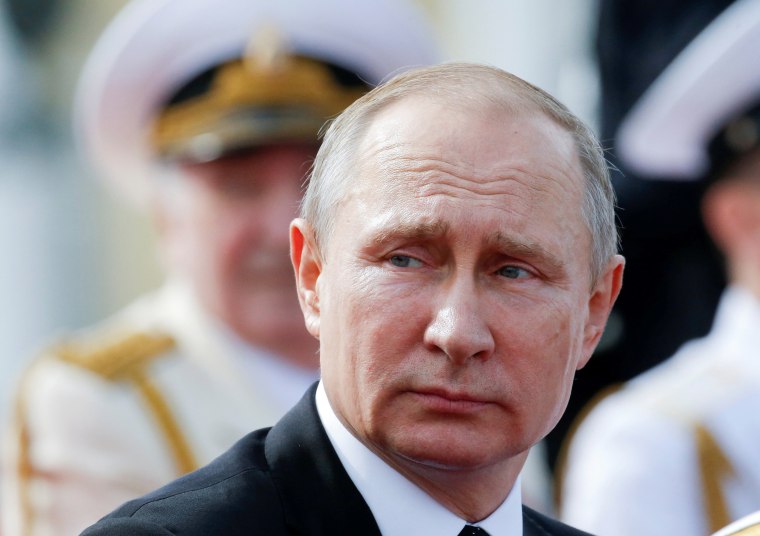MOSCOW — Washington may cut local employees as well as diplomats in Russia, according to a Kremlin spokesman, diluting the impact of an ultimatum that the U.S. cut its staff in the country by 755.
Dmitry Peskov told reporters the measure extended to “diplomats" and "those without diplomatic status,” some of whom could be Russian citizens who work for the U.S. embassy.
Peskov also said that Russia has the right to “additional reaction," but that Putin believes this is not necessary at this time.
On Sunday, Putin said that there were more than 1,000 U.S. diplomatic employees in Russia.
According to a report by the Inspector General of the Department of State, which tracks spending across the organization, in 2013 the U.S. embassy and related missions in Russia employed 1,279, including 301 direct hire positions and 934 locally employed staff.
A State Department official told NBC News on Sunday that the Russian order would cut the number of diplomatic staff to 455 by Sept. 1.
"This is a regrettable and uncalled-for act," the official said. "We are assessing the impact of such a limitation and how we will respond to it.”
Putin said Sunday he introduced the measure in response to “illegal restrictions” imposed by the United States.
The U.S. House and Senate voted overwhelmingly last week to back new sanctions, which aim to punish Moscow for its alleged interference in the 2016 presidential election and for its military aggression in Ukraine and Syria.
A provision in the veto-proof legislation would limit President Donald Trump's ability to unilaterally lift the sanctions.
On Friday, the White House said that Trump intended to sign the legislation into law after “negotiating regarding critical parts of it.”
Several U.S. intelligence agencies believe that Russia sought to interfere in the 2016 presidential election. However, Putin has repeatedly denied this, including during an interview with NBC’s Megyn Kelly in June.
Former President Barack Obama expelled 35 Russians from the U.S. in December and seized two compounds used by Russian diplomatic staff, one in Maryland and another in New York, in response to Russian interference in the 2016 election.
But with Donald Trump only a few weeks away from his inauguration, Putin refrained from responding at the time. Then-candidate Trump called that decision a “great move” shortly after, but the U.S. has not handed back the seized Russian compounds in the period since.
Alan Kaytukov reported from Moscow, and Eoghan McGuire reported from London.
